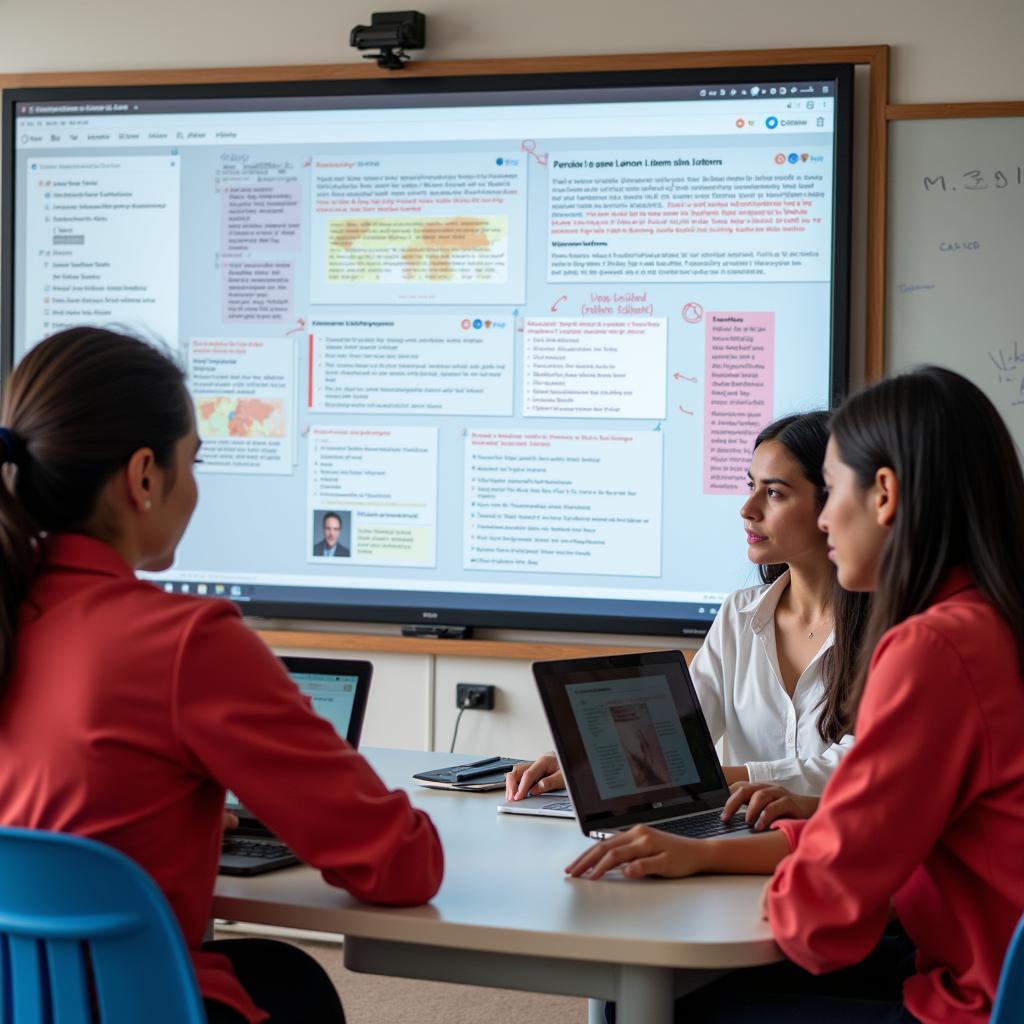The topic of online education’s impact on social interactions has become increasingly relevant in IELTS Writing Task 2, particularly following the global shift to digital learning during recent years. This theme has appeared in various forms across recent test papers, especially in questions about technology’s influence on society and education. Based on analysis of past papers, this topic is likely to remain significant in future IELTS examinations.
how online learning is changing traditional education systems provides valuable context for understanding this evolving educational landscape.
Let’s examine a recent IELTS Task 2 question on this topic:
Some people believe that online education reduces meaningful social interaction between students. To what extent do you agree or disagree with this statement?
Question Analysis
This question requires candidates to:
- Take a clear position on whether online education impacts social interaction
- Support arguments with relevant examples
- Consider both positive and negative aspects
- Provide a balanced discussion
- Conclude with a well-supported opinion
Sample Essays
Band 8 Essay
The assertion that online learning diminishes meaningful social interaction among students is a contentious issue that warrants careful examination. While there are valid concerns about reduced face-to-face contact, I partially disagree with this statement as digital platforms can facilitate unique forms of social engagement.
Online education has evolved to incorporate various interactive elements that can enhance social connections. Modern virtual classrooms feature breakout rooms, collaborative projects, and discussion forums that encourage student interaction. For instance, international students can now engage with peers from diverse cultural backgrounds, fostering global perspectives that might be impossible in traditional settings. Additionally, shy or introverted students often find it easier to participate in online discussions, leading to more inclusive social dynamics.
However, it would be remiss to ignore certain limitations of virtual interaction. The absence of physical proximity can indeed affect the development of non-verbal communication skills and spontaneous social bonding. Students may miss out on casual conversations during breaks or immediate peer support that naturally occurs in traditional classrooms. These informal interactions often contribute significantly to social development and networking abilities.
Nevertheless, the influence of technology on traditional family structures shows that meaningful connections can be maintained and even strengthened through digital means. Online education platforms are continuously evolving to address social interaction challenges through innovative features like virtual study groups, social learning apps, and gamified group activities. These tools can create engaging social experiences that complement traditional interaction methods.
In conclusion, while online education presents certain challenges to traditional social interaction, it also offers unique opportunities for meaningful connection and collaboration. The key lies in leveraging technology effectively to create engaging social learning environments while being mindful of maintaining a balance with face-to-face interaction where possible.
Band 6.5 Essay
I partially agree that online education reduces meaningful social interaction between students. While there are some drawbacks, online learning also provides different ways for students to connect with each other.
The main problem with online education is the lack of physical interaction. Students cannot meet face-to-face or have casual conversations during break time. This makes it harder to make friends and build relationships. Also, some students feel lonely when studying alone at home without classmates around them.
However, online education has some benefits for social interaction. Students can use chat rooms and discussion boards to share ideas and work together on projects. They can also connect with students from other countries, which is not possible in traditional classrooms. Future of online education and impact on traditional learning? shows many positive examples of this.
Another advantage is that shy students often feel more comfortable participating in online discussions. They don’t feel the pressure of speaking in front of a large group. This means more students can join in conversations and share their opinions.
In conclusion, while online education changes how students interact, it doesn’t completely reduce meaningful social interaction. It just creates different ways for students to connect and communicate with each other.

Scoring Analysis
Band 8 Essay Analysis
- Task Response (9): Clear position with nuanced analysis
- Coherence and Cohesion (8): Logical progression with effective paragraphing
- Lexical Resource (8): Sophisticated vocabulary use
- Grammar (8): Complex structures with minimal errors
Band 6.5 Essay Analysis
- Task Response (7): Clear but simpler position
- Coherence and Cohesion (6): Basic organization
- Lexical Resource (6): Limited but adequate vocabulary
- Grammar (7): Mix of simple and complex structures
Key Vocabulary
- contentious (adj) /kənˈtenʃəs/ – causing disagreement or debate
- facilitate (v) /fəˈsɪlɪteɪt/ – make easier
- spontaneous (adj) /spɒnˈteɪniəs/ – unplanned, natural
- gamified (adj) /ˈɡeɪmɪfaɪd/ – made into a game
- leverage (v) /ˈlevərɪdʒ/ – use effectively
- nuanced (adj) /ˈnjuːɑːnst/ – subtle differences in meaning
- complementary (adj) /ˌkɒmplɪˈmentəri/ – combining well together
For additional practice, try writing your own essay addressing how Does the internet make life more convenient or lead to isolation. Share your essays in the comments for feedback and discussion.